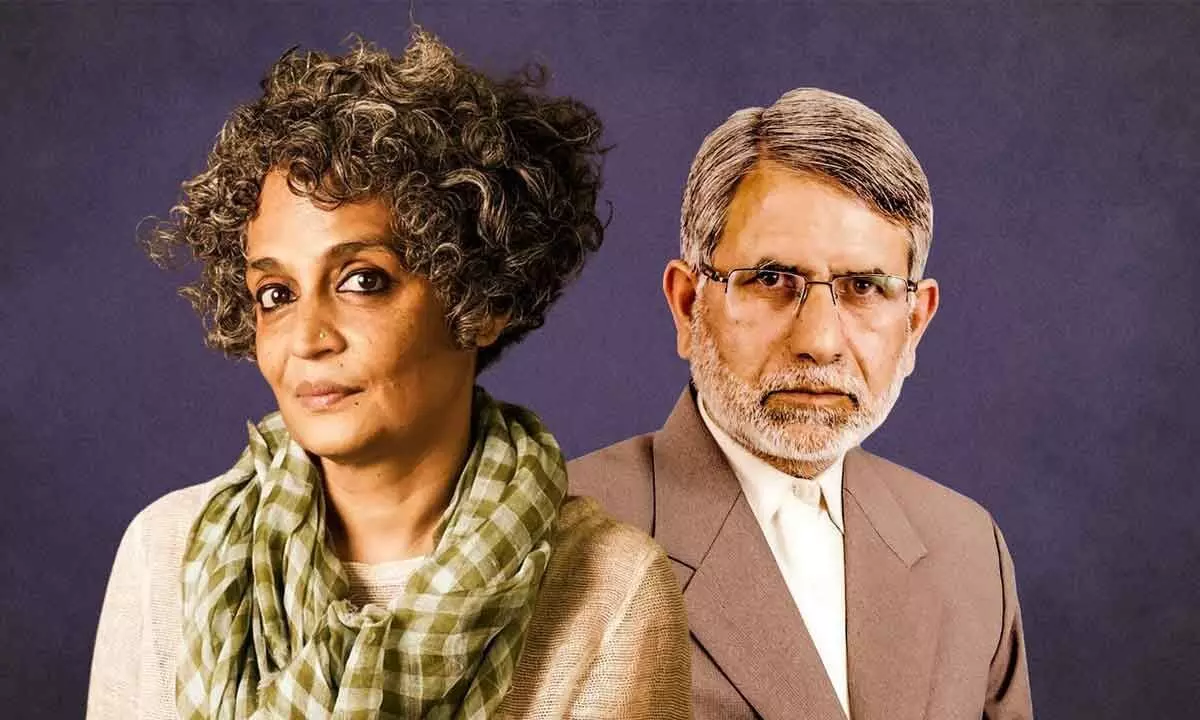Delhi Lieutenant Governor Vinai Kumar Saxena has sanctioned the prosecution of novelist Arundhati Roy and Sheikh Showkat Hussain, former Professor of International Law at the Central University of Kashmir, under the Unlawful Activities Prevention Act (UAPA) for their alleged statements at a conference organized under the banner of ‘Azadi – The Only Way’ at New Delhi’s LTG auditorium in 2010.
The case, stemming from speeches delivered at the aforementioned conference, involved discussions that allegedly advocated the “separation of Kashmir from India.” The complaint leading to the FIR was filed by activist Sushil Pandit, and the subsequent investigation and registration of the FIR were carried out based on the directions of the Metropolitan Magistrate Court in New Delhi.
Source: Anshul Saxena on X (formerly Twitter)
The accused, including Arundhati Roy and Sheikh Showkat Hussain, have been charged under sections 124A (sedition), 153A (promoting enmity between different groups), 153B (imputations prejudicial to national integration), 504 (intentional insult to provoke breach of the peace), and 505 (statements conducing to public mischief) of the Indian Penal Code (IPC), along with Section 13 of the UAPA.

Source: The Hans India
This decision by the Delhi LG has reignited discussions about the legal and political dimensions of free speech, sedition, and the advocacy of separatist ideologies, drawing attention to the complex interplay between freedom of expression and national security concerns. Roy has been branded a “gucci separatist and maoist sympathiser” by journalists like Arnab Goswami and the Hindu Right, whereas another section of netizens raise questions on the government’s authority to determine who can be a “terrorist” or “anti-national” and the potential threat this decision might cause to the freedom of speech and expression guaranteed to every Indian by the Constitution.
The UAPA, which was amended in 2019, gives the Centre and the National Investigation Agency an upper hand to take control of cases which would otherwise be under the jurisdiction of the police of individual states. According to critics, the act does not define clearly what qualifies as “terrorism”, “terrorist literature” and “terrorist theory”,
The case continues to evolve as legal proceedings move forward, and it remains a subject of significant public interest and debate.
Read Also: https://www.thenewshamster.com/5-reasons-why-popular-front-of-india-and-affiliated-organizations-have-been-banned-under-uapa/



















































































